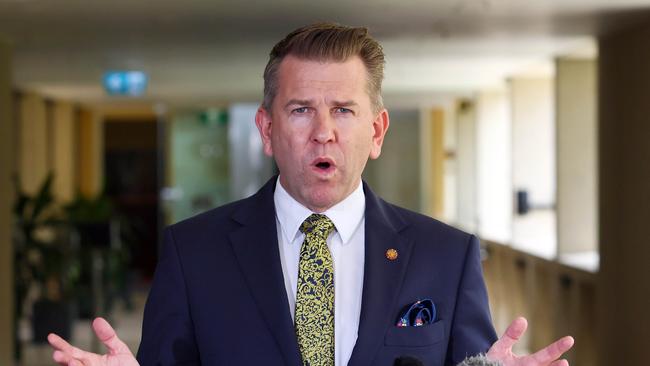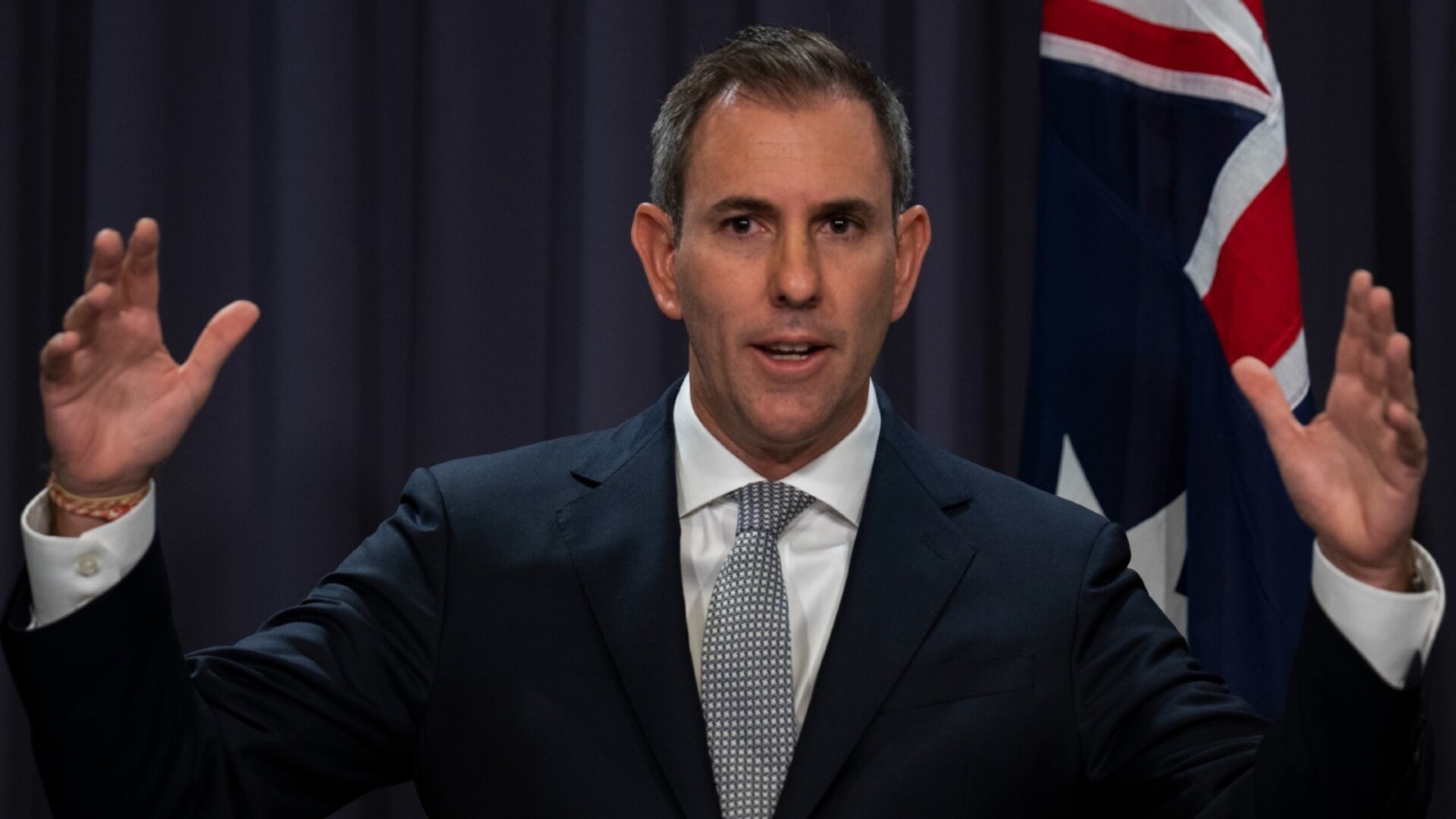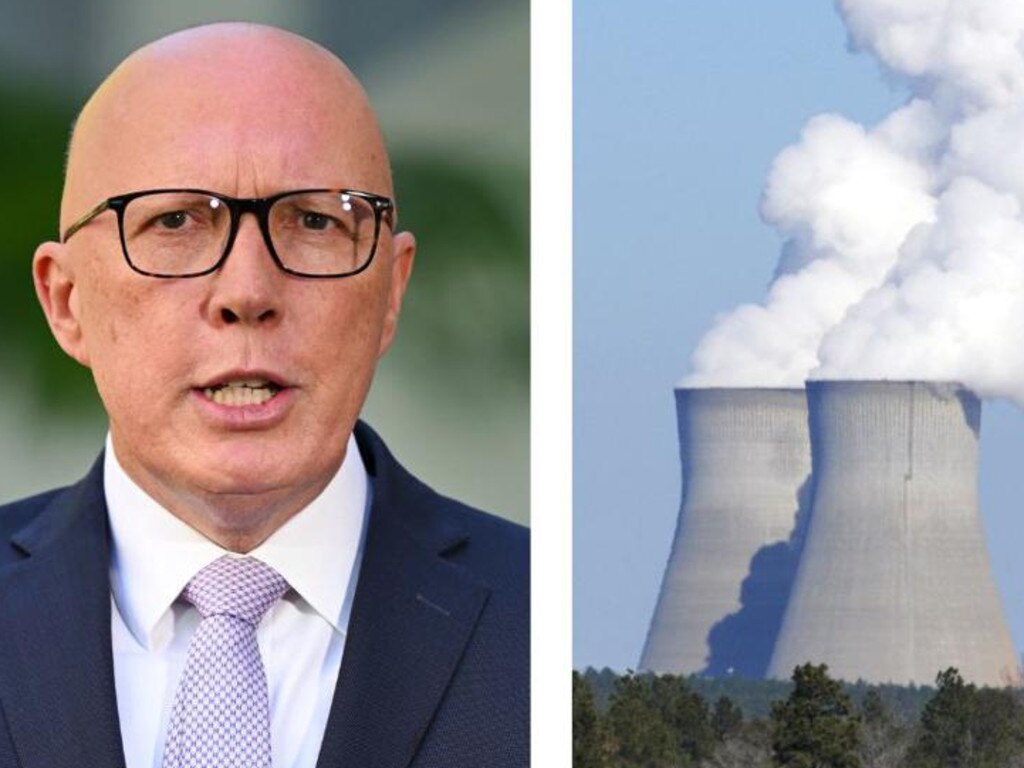Jarrod Bleijie has not read Peter Dutton’s nuclear energy modelling but says Queensland won’t support plan
Queensland’s Deputy Premier has declared the state’s voters do not support Peter Dutton’s nuclear power plan as he described the prospect of the Coalition winning the federal election as ‘hypothetical’.

Queensland Deputy Premier Jarrod Bleijie has declared the state’s voters do not support Peter Dutton’s nuclear power plan, and described the prospect of the Coalition winning the upcoming federal election as “hypothetical”.
Conceding he had been too busy “running the state government” to read the economic costings of the federal Opposition Leader’s plan to build seven nuclear reactors in Australia, including two in his home state of Queensland, Mr Bleijie said voters had rejected nuclear energy at the October state election.
“We didn’t support it, Queenslanders didn’t support it,” he said.
“We took our position of not supporting that to the election, and guess what? Queensland has voted for that position.”
Asked to explain why the new Liberal National Party government opposed nuclear power, Mr Bleijie said: “Because we have our own plan”, which includes a maintenance guarantee for coal-fired power stations and a commitment to build small pumped hydro stations.
Long-awaited financial modelling on Mr Dutton’s nuclear plan, delivered by consultancy Frontier Economics and released last Friday, showed a total cost over the next 25 years of $331bn, compared to the $600bn renewables-only policy Labor is pursuing.
It also assumes nuclear would contribute 38 per cent of energy generation by 2050, with the first plant to replace retiring coal stations to be operational by 2036.
Speaking in South Australia on Tuesday, Mr Dutton said the proposed zero-emissions nuclear technology would “get electricity prices down” so Australia “can keep the lights on and we can decarbonise as well”.
“For nuclear technology, it’s cheaper electricity because you amortise the cost – you spread the cost out over a 60-80-year period and probably closer to a century with the technology developments that we’re seeing,” he said. “It’s why 19 of the top 20 economies in the world have embraced nuclear, or have signed up to it. It’s why there are 32 countries who are using nuclear at the moment and 50 have committed to do so, and there are over 400 reactors in the world.”
Criticising it as a “fantasy”, Treasurer Jim Chalmers said Mr Dutton’s plan would push electricity prices up, not down, and noted the Frontier Economics had not provided specific modelling of electricity prices for households and businesses.

Mr Bleijie would not be drawn on whether he thought Mr Dutton’s nuclear plan was too expensive, or if he thought it had any merit.
“Here’s the thing – I don’t know how many times I can answer this for you; we have our plan, Peter Dutton, the opposition, can have their plan, but that’s not our plan,” he said.
“Our plan is our plan, and we’re sticking to it.”
While Mr Bleijie said he had read reports on the nuclear costings, he had not “read the actual modelling” because “we’re running the state government”.
Senior Liberal National Party figures have argued that if Mr Dutton wins the federal election, due by May, he would have received a mandate from Australians to introduce nuclear power to the energy mix, but Mr Bleijie said a Coalition victory was “hypothetical”.
Ahead of Queensland’s October election, now Premier David Crisafulli categorically ruled out repealing state legislation banning nuclear, but has repeatedly refused to explain why, only that it was a matter for Canberra and “not part of our plan”.
Steven Miles, now Queensland’s Opposition Leader, has said that state law not only bans nuclear in Queensland, “but also requires the minister to hold a plebiscite as soon as they reasonably believe that the Australian government intends to build a nuclear reactor”.
Federal Coalition energy spokesman Ted O’Brien, who holds the Queensland-based seat of Fairfax, was unavailable to respond to Mr Bleijie’s comments when contacted by The Australian.





To join the conversation, please log in. Don't have an account? Register
Join the conversation, you are commenting as Logout